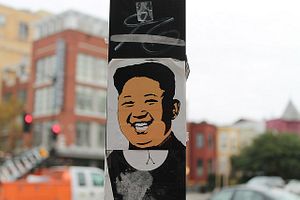Wednesday, the United Nations Security Council voted to impose a new round of sanctions on North Korea in response to both its January 6 nuclear test and February 7 satellite launch (widely believed to double as a missile launch test). The new sanctions have been characterized by various media sources as “sweeping” and the “toughest” yet imposed because they mandate that all ships from North Korea be inspected. Previously, only ships suspected of carrying sanctioned goods were searched.
The council–comprised of five permanent members (China, France, Russia, the U.K., and the United States) and ten non-permanent members–voted unanimously for the measure. The vote was delayed by a day, with Russia requesting extra time to review the draft.
UN Secretary General Ban Ki-moon welcomed the agreement, saying in a statement, “Today’s unanimous action by the Security Council has sent a clear message that the DPRK must return to full compliance with its international obligations.” In a statement from the White House, U.S. President Barack Obama said, “This resolution levies strong new sanctions aimed at halting Pyongyang’s efforts to advance its weapons of mass destruction programs.”
What’s missing from such statements, however, is a recognition that it is becoming more difficult to find ways to coerce North Korea into complying with international pressure to cease its nuclear program. It is also becoming more difficult to reach consensus on what more to do.
The new sanctions took nearly two months to negotiate, as Shannon Tiezzi noted last week:
The current debate over a UNSC response to a North Korean nuclear test has already gone on far longer than ever before. But the delayed response fits a general pattern that each time, it’s been a little more difficult – and taken a little longer – to reach a consensus on the Security Council. The UNSC passed sanctions in response to North Korea’s first nuclear test within five days. It took a little over two weeks to pass sanctions after the second nuclear test and just under a month after the third. This time, we’re closing in on two months since the January 6 test. Each time North Korea violates existing UNSC resolutions the international community – and particularly the United States and China – become more divided on how best to respond, something Kim Jong-un is sure to have noticed.
The resolution came together after a visit by Chinese Foreign Minister Wang Yi to the United States in late February. In the past, China has hesitated to agree to widening sanctions on North Korea. Almost all of North Korea’s trade goes through China but the relationship has deteriorated in recent years, impacting Chinese overtures to South Korea, in particular. A separate piece of news underscores the change in Beijing’s attitude; as reported by Yonhap New Agency, China ordered its four largest banks to suspend the transfer of yuan to North Korean banks. That measure was reported before the UNSC passed the sanctions resolution.
Per the BBC, the new round of sanctions include:
- A ban on the export of coal, iron and iron ore used for North Korea’s nuclear or ballistic missile programs
- A ban on all exports of gold, titanium ore, vanadium ore and rare earth minerals
- A ban on aviation fuel exports to the country, including “kerosene-type rocket fuel”
- A ban on military and police cooperation, closing down North Korea’s training programs abroad, especially in Africa
- Upmarket watches, watercraft, snowmobiles and other recreational sports equipment added to a ban on luxury goods
- Countries working in North Korea’s financial and banking sector are now obliged to freeze the assets of companies and other entities linked to North Korea’s nuclear and missile programs – under a previous resolution, they were only encouraged to do so
The measures were designed to tackle loopholes left by previous rounds of sanctions–though loopholes still remain. The first provision listed above doesn’t ban all coal and iron and determining the ultimate end-use of such materials being exported into North Korea will be tremendously difficult. Most of the sanctions–particularly the bits on luxury goods–target North Korean leader Kim Jong-un, who apparently has expensive tastes.

































